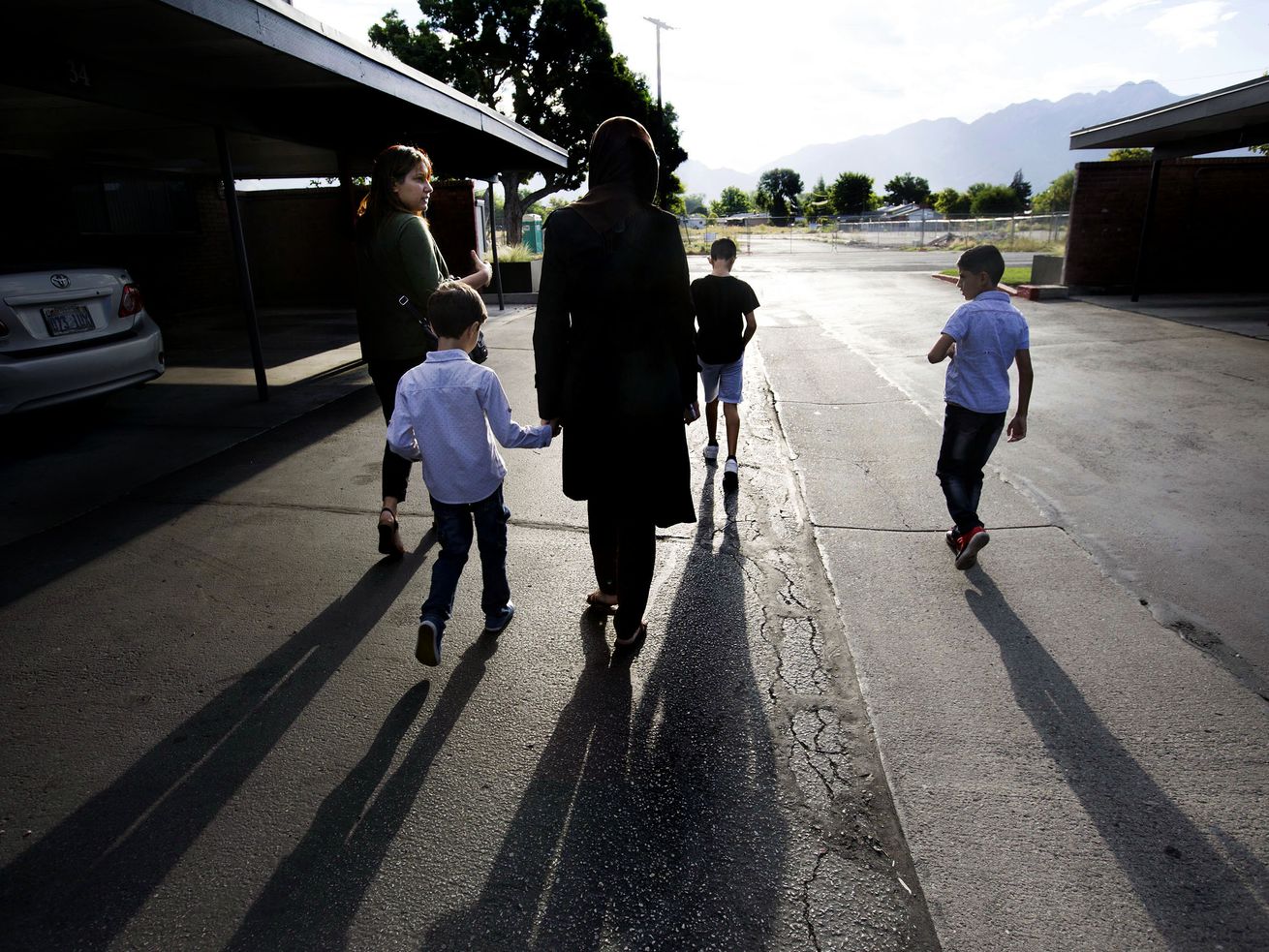Refugees face many obstacles in Utah public schools

Refugee students could be arbitrarily barred from enrollment, placed in an inappropriate grade or prematurely age out of the school system. Imagine if your daughter’s high school said she had to graduate at 16?
The Tumaini Welcome and Transition Center hosts a two-week program for K-12 students in the Granite School District who are attending school in the United States for the first time. When I visited, I watched students learn some things we may take for granted: How to ride the school bus, how to raise their hands in class and how to open a locker — how to do school in America.
Tumaini is Swahili for ‘hope.’ Programs like the Tumaini Center offer just that: an education that enables young refugees to follow their new American dreams.
While the Tumaini Center provides a wonderful welcome to Utah’s schools, the journey of a refugee student lasts longer than two weeks — to graduation and beyond. That’s why I’m sponsoring two bills to support refugee and newcomer students from the moment they first enter a Utah school to the moment they walk across the graduation stage, cap and gown in hand.
My first bill, HB230: “Refugee and Immigrant Student Policies Amendments,” supports refugee students throughout the school enrollment process. Enrollment is often a refugee family’s first meaningful interaction with a Utah institution; and my bill ensures this process is as welcoming as our great state.
Modeled after existing law that provides flexibility to military families, my bill will ensure that the ages of refugee students are documented correctly by their schools and their prior educational experiences are translated correctly into Utah credits. It also ensures that families get the clarity they need regarding their eligibility for existing extensions of enrollment timelines, as it may take refugee families a few extra days to make appointments in their new home.
Without this bill, refugee students could be arbitrarily barred from enrollment, placed in an inappropriate grade or prematurely age out of the school system. Imagine if your daughter’s high school said she had to graduate at 16? Or if they placed her in a grade two years above her age? As refugee parents learn to navigate Utah’s schools, these measures will allow them to better advocate for their children’s needs.
My second bill supports local school districts in their efforts to communicate with refugee families in their languages. My responsibility as a legislator is to “respect, promote and further the interests of parents in their children’s public education,” including the interests of parents and guardians that are learning English.
Last year, I had the honor of hearing from several refugee middle school students in Clayton Middle School teacher Stephanie Hunt’s class who spoke to the House Education Committee about the importance of celebrating and supporting multilingual families. One student, named Pray, and her mother sought refuge in the United States from Thailand when she was 7 years old. As she told us that day, “It was hard because it was just the two of us, which is me and my mom. … Getting into school was hard because I didn’t know English. It was hard to make friends at school. It was hard for my mom too … because she was having a hard time understanding people. I was trying so hard to help her learn English and help myself to learn English more.”
Another student, Hadjera, described how students often must bridge the language gap between schools and their parents: “With my mom not knowing English, it’s just me and my siblings helping her with papers that come in the mail. ... Doing schoolwork was really hard because my mom couldn’t help us, and it was just us doing our schoolwork by ourselves. If we had a support system to help us when we start school and help us learn customs in other cultures, it would help us a lot.”
Families that speak English as their native language may take for granted all of the paperwork and emails that teachers send home — classroom updates, requests for volunteers, consent forms. However, what might be a quick note on the family calendar for some can become a crisis for families learning English.
For example, if a family learning English cannot access information about their student attending a field trip, that parent may become concerned when their child isn’t at the school. Families learning English may not know how to talk to their child’s teacher about disability services, mental health supports or even extra math help.
My bill would support the use of language services by requiring schools to have a plan to communicate with these families. The bill also establishes a council to ensure existing interpretation and translation services meet the needs of Utah’s students and their families.
Last year, every member of the Legislature voted in support of a resolution I sponsored — House Concurrent Resolution 22, titled “Concurrent Resolution Celebrating the Contributions of Multilingual and Multicultural Families to Utah Schools.” This resolution committed the Legislature and the governor to “supporting the contributions of multilingual and newcomer families.”
I hope my colleagues will join me in keeping that promise to Utah’s refugee families throughout this upcoming legislative session; as policymakers, we have the opportunity to respect and support the role of all families — including refugee families — in Utah’s school system.
Dan N. Johnson, a Republican from Logan, serves as a member of the Utah House of Representatives from the 4th District.
